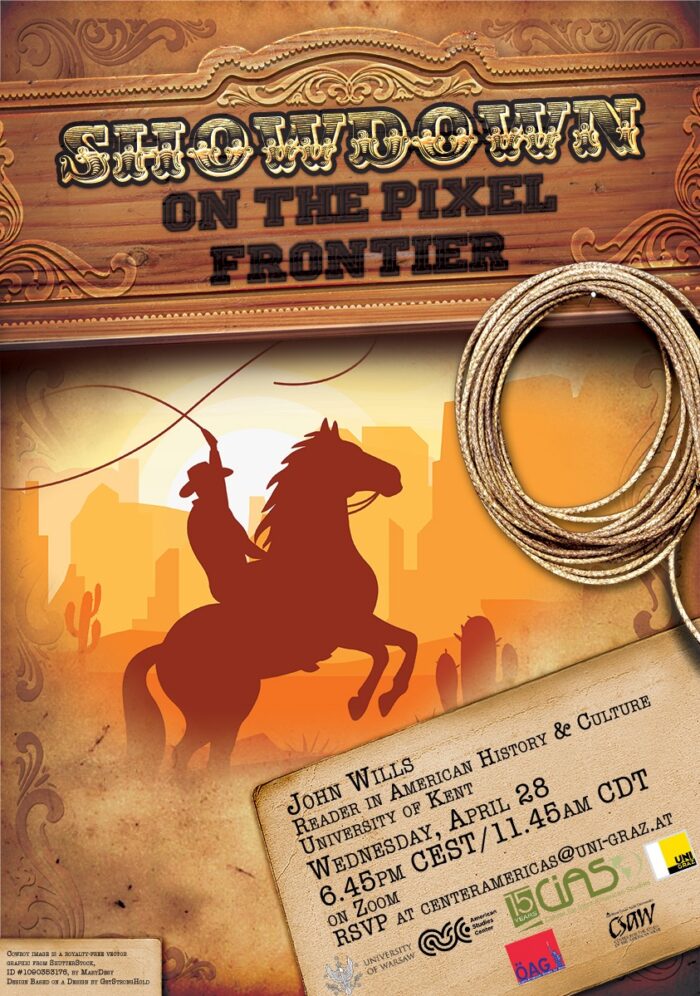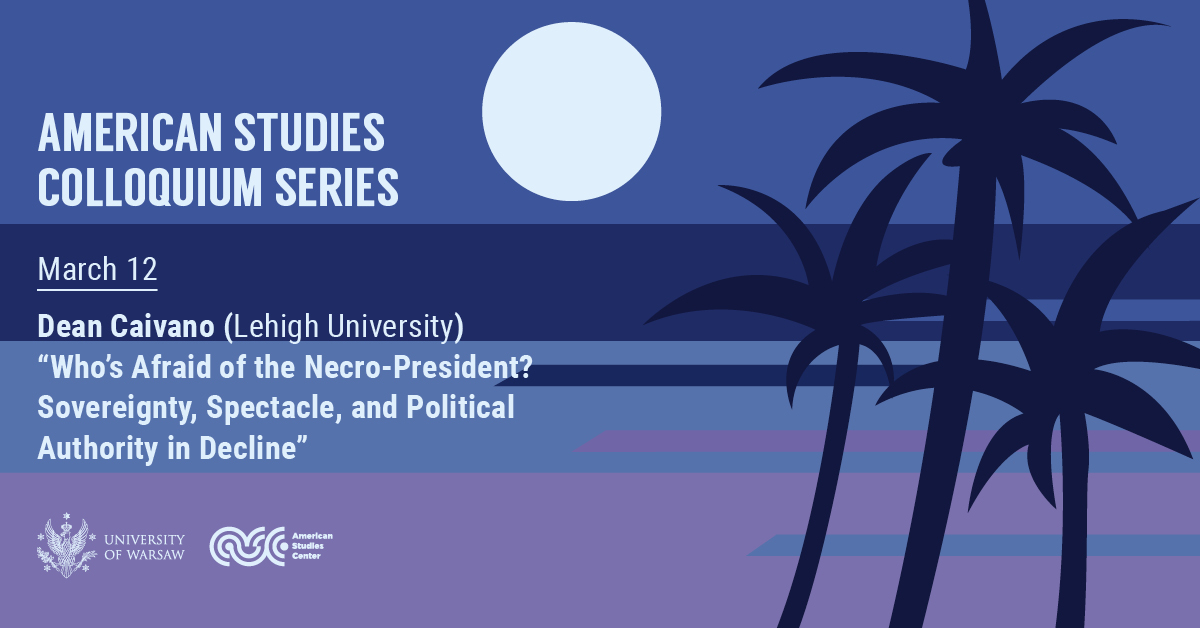We are happy to invite for a virtual talk with
John Wills
(University of Kent)
Showdown on the Pixel Frontier
Wednesday, April 28, 2021
at 6:45 p.m. CEST
This event is brought to you by a collaboration between the Speculative Texts and Media Research Group at the American Studies Center of the University of Warsaw, the Center for the Study of the American West at West Texas A&M, and the Center for Inter-American Studies at the University of Graz.
You can get 2 OZN points for participating in this event.
Check how to collect OZN points online.
Where?
This is an online event. Register at centeramericas@uni-graz.at to receive a link to the meeting via email.

What?
Drawing on his new book Gamer Nation: Video Games and American Culture (Johns Hopkins University Press 2019), John Wills’ talk will offer insight into the simulation of “America” in modern video games. In particular, the talk will explore how the nineteenth-century American West became a popular gameworld for the video game industry, and how early “Wild West”-themed titles in the 1970s not only taught players about the historic frontier, but also how to play a new interactive entertainment media. The talk will, accordingly, explore issues of storytelling, stereotyping, and myth-making in the Western video game genre.
Who?
John Wills is Reader in American History and Culture at the University of Kent. Besides Gamer Nation, he is the author of Disney Culture (Rutgers University Press, 2017), US Environmental History: Inviting Doomsday (Edinburgh University Press, 2012), and Conservation Fallout: Nuclear Protest at Diablo Canyon (University of Nevada Press, 2006) and co-author of The Invention of the Park: From the Garden of Eden to Disney’s Magic Kingdom (Polity Books, 2005) and The American West: Competing Visions (Edinburgh University Press, 2009). In addition, he is the chief editor of the European Journal of American Culture.




